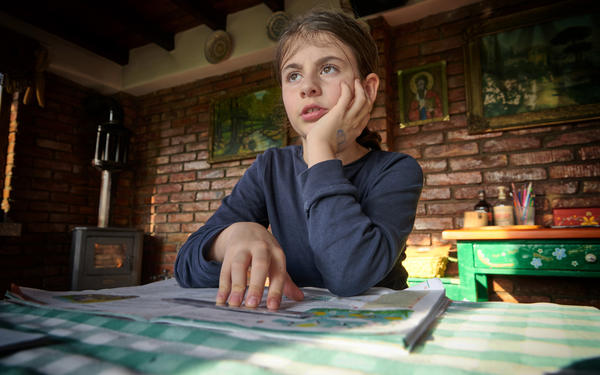Education Reform and COVID
Education reform is high on the agenda around the world. The high ambitions for the reform of education systems are captured in the Sustainable Goal 4 (SDG4 - Education 2030). SDG4 puts inclusive, equitable quality education and lifelong learning opportunities at the top of the reform agenda to be achieved by 2030.
Considerable progress has been made in getting children into schools but in 2019 the spread of the Covid-19 global pandemic halted this progress. Indeed, very recent research shows that even when online learning has been provided to compensate for lack of face-to-face teaching there has been a huge dip in learning outcomes. It is within this wider global context that Cambridge began to work with the World Bank in Romania.
Romanian education reform programme
The Romanian Ministry of Education (ME) has committed to providing education for all and has prioritised personal and social development, focussing on the prevention of early school exits. The World Bank and the Romanian ME have worked together to develop an Early Warning Mechanism to address early school leaving. Their recovery plan centres on developing the teaching workforce. A major part of this plan provides support activities such as remedial classes, tutoring, and the development of socio-emotional skills targeting students from disadvantaged groups. Cambridge was involved in the other major development area to promote the upskilling of teachers’ pedagogical knowledge. Work in Romania has begun on the development of a useful diagnostic tool, TEACH instrument, and this is being carried out at the University of Bucharest with World Bank support.
International partnership
The Faculty of Education in partnership with the Cambridge Partnership for Education have collaborated with the World Bank and colleagues at the University of Bucharest to develop teachers’ pedagogical skills. This work has brought together policy direction, research evidence and practice experience of implementing teacher development programmes. The underlying principles informing this Romanian teacher intervention are based on research carried out by the Faculty of Education of their practice experience of implementing a large-scale whole country teacher development programme in Kazakhstan.
The pragmatic approach taken in the Romanian short small-scale intervention was based on the evidence that a 'soft' approach to accountability is the most effective method of introducing and sustaining new ways of working. A ‘soft’ approach is one which recommends supporting teachers to develop their knowledge and skills so that their teaching improves and they are able to do their job better.
Countries who have adopted a 'soft' approach to accountability also base policy and practice on extensive (thick) research and sound theoretical underpinning. Consequently, the Romanian programme is firmly situated in a 'soft' approach based on 'thick' theory and on robust evidence that supports the development of professional capital of existing teachers which ought to build the professional capacity of the school system in Romania. Table one set outs the steps adopted to implement the small-scale pilot study carried out with eleven schools in the east of Romania.

Outcomes
Despite the language differences and the very short timescales involved, the evidence collected from the final conference presentations show that there is a willingness on the part of the teachers to participate in pedagogical development. Furthermore, the presentations show that the teachers have the capacity to learn when supported. This support took three forms. First, through the trusting relationships already established between the teachers in each school with the Romanian support team meant that teachers had a familiar 'critical friend' to consult throughout. In addition, the Faculty of Education team provided a research structure with scaffolds to aid thinking. This enabled the teachers to take risks to try out something new in their classrooms. A final motivating factor was the award of a certificate of participation on completion of the work. In response to the teachers' needs survey of areas of practice to develop, many teachers asked for help to motivate students in their classes and many also wanted help to bring frequently absent children into school. What this short-term programme was able to do was persuade teachers to try out new approaches and to give them positive feedback and encouragement to take risks. It is a credit to the teachers that they have achieved so much in such a short space of time.
Final take-away message
In the short period of time we have been working with the teachers in the pilot schools our
deep held beliefs about teachers and teaching have been reinforced. Teachers are essentially the same all over the world. That is, they care deeply about the children in their classes and when they themselves are encouraged and nurtured they can rise to any challenge.
About the author
Dr Elaine Wilson is an Associate Professor in the Faculty and is a Fellow, Praelector and Dean of Homerton College. Elaine was a secondary school chemistry teacher in Bath and Cambridge and was awarded a Salters' Medal for chemistry teaching. She has also received two career awards for teaching in Higher Education; the University of Cambridge Pilkington Teaching Prize, in recognition of excellence in University teaching and a National Teaching Fellowship in recognition of excellence in teacher education leadership.
Elaine teaches Masters students in the ELSI route and supervises Doctoral students. Her research interests are in; Implementation and Improvement Science, Education Reform, Teacher Education, and Digital Technology. Elaine has supported the implementation of international teacher reform programmes. Between 2012 - 2016 she developed and supported the implementation of a whole country teacher reform programme in Kazakhstan and more recently she has worked with teachers in India funded by the British Council and has developed a teacher led development programme in Romania funded by the World Bank. Elaine has collaborated with the Norwegian Research Council since 2017.





